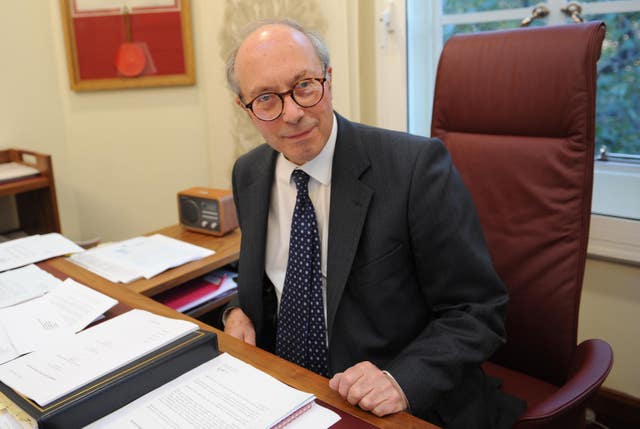
The Supreme Court’s judgment on the legality of a Scottish independence referendum could be provided within six to eight weeks, its former deputy president has said.
The court will hear arguments this week after a referral from the Lord Advocate on a prospective Bill legislating for a referendum.
Speaking on BBC Radio Scotland’s the Sunday Show, Lord Hope said the prestigious court recognised the importance of the issue and would want to provide a judgment “as soon as possible”.
He said: “I would expect something like six to eight weeks to go past. We’re not talking about many months.
“This is an important issue. The court really recognises that and I’m sure it will try to get the judgment out as soon as possible.”
However, it may be clear after around “the first hour” which way the hearing is going, he said.
The Scottish Government has emphasised its intention to hold an independence on October 19, 2023 – regardless of the ruling.
First Minister Nicola Sturgeon said her party would use the next general election to campaign on a “de facto referendum” – solely on the constitutional issue.
She earlier told BBC’s Sunday with Laura Kuenssberg that plans were “ready to go” to legislate for a referendum, if the go-ahead is given from the Supreme Court.

Prime Minister Liz Truss – and her predecessor Boris Johnson – have been clear a section 30 order, which would allow the vote to go ahead, would not be granted after the “once-in-a-generation” poll in 2014.
Lord Hope added there will be no oral witnesses from either side of the argument and instead the hearing will act as a debate or seminar for the panel to decide the outcome.
“They will have the (Scotland) Act in front of them, they’ll be very interested to hear from the Lord Advocate on what she has to say and they’ll be exploring her reasons for bringing the case before them and the arguments which she wants to follow.”
The Advocate General’s counsel, the UK Government’s law officers, will then argue that the application is premature and there is not the power to hold the vote, Lord Hope said.
“It is a very interesting debate. In the first hour or so, I think, will make it very clear which way the court is likely to go,” he added.


Why are you making commenting on The National only available to subscribers?
We know there are thousands of National readers who want to debate, argue and go back and forth in the comments section of our stories. We’ve got the most informed readers in Scotland, asking each other the big questions about the future of our country.
Unfortunately, though, these important debates are being spoiled by a vocal minority of trolls who aren’t really interested in the issues, try to derail the conversations, register under fake names, and post vile abuse.
So that’s why we’ve decided to make the ability to comment only available to our paying subscribers. That way, all the trolls who post abuse on our website will have to pay if they want to join the debate – and risk a permanent ban from the account that they subscribe with.
The conversation will go back to what it should be about – people who care passionately about the issues, but disagree constructively on what we should do about them. Let’s get that debate started!
Callum Baird, Editor of The National
Comments: Our rules
We want our comments to be a lively and valuable part of our community - a place where readers can debate and engage with the most important local issues. The ability to comment on our stories is a privilege, not a right, however, and that privilege may be withdrawn if it is abused or misused.
Please report any comments that break our rules.
Read the rules hereLast Updated:
Report this comment Cancel